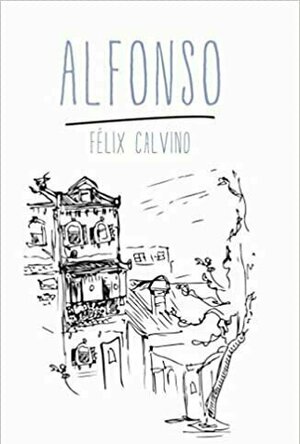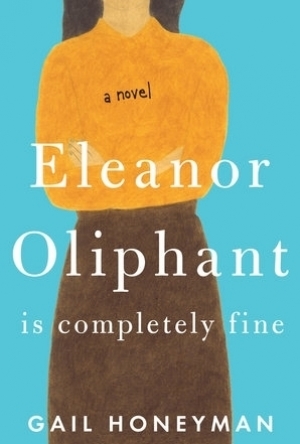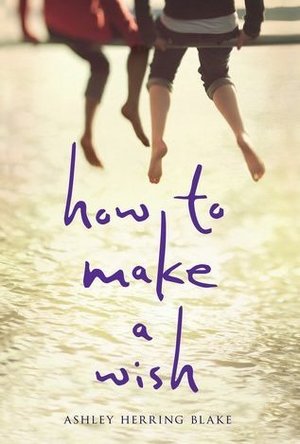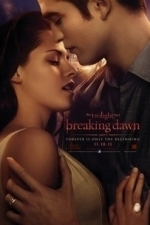
SonyLIV-LIVE Cricket TV Movies
Entertainment and Photo & Video
App
Watch India Tour of West Indies and Sri Lanka exclusively on SonyLIV. Welcome to the world of...

Sweat: Kayla Itsines Fitness
Health & Fitness and Lifestyle
App
Sweat with the Kayla Itsines BBG Program and join the world’s biggest female fitness community and...
Ivana A. | Diary of Difference (1171 KP) rated Alfonso in Books
Aug 3, 2020
<a href="https://diaryofdifference.com/">Blog</a>; | <a href="https://www.facebook.com/diaryofdifference/">Facebook</a>; | <a href="https://twitter.com/DiaryDifference">Twitter</a>; | <a href="https://www.instagram.com/diaryofdifference/">Instagram</a>; | <a href="https://www.pinterest.co.uk/diaryofdifference/pins/">Pinterest</a>;
<img src="https://i0.wp.com/diaryofdifference.com/wp-content/uploads/2020/04/Book-Review-Banner-35.png?w=663&ssl=1"/>;
Alfonso is a young man that has moved to Australia to find a better life. Through his story, we follow his feelings and search for purpose.
As a person that moved to another country to find a better life, I can understand Alfonso and I can relate to what he feels and thinks. Coming into another country can be extremely difficult, leaving your family and friends behind, knowing those relationships will never be the same again. Coming to terms with the fact that you will always be a foreigner and have trouble with people accepting you. Trying to make friends and get inside inner circles of people that have been together since high-school – yeah, good luck with that…
Given how I can relate to Alfonso’s situation, and the similarities I have with this character, I thought I would love this book. But I didn’t. Even though I could relate with him, I couldn’t agree with his perceptions and beliefs. Alfonso was always trying to find a girl to spend his life with. Which is normal and expected. However, instead of being his true and authentic self, he desperately tries to be as “less foreign” as possible and adapt to his audience. This is something that seemed to push the potential women away. Not to mention that he was being quite creepy at times (following a girl’s bus schedule and being there before she departs etc.)
Living in a new environment shouldn’t mean that people should stop being who they are and stop believing in what they do, or respecting and practicing the customs from the country they were born and raised from.
All my friends know that in my country we boil and colour actual eggs for Easter, rather than eat chocolate ones. In our home, me and my boyfriend celebrate two Christmases; one on the 25th December, where he does everything by his tradition, and one on 7th January, where I prepare everything in my tradition. And it works. And it’s double the fun and jolly spirit.
I couldn’t relate with the fact that Alfonso feels that he needs to change and adapt, and leave behind his culture. I also couldn’t comprehend the fact that he needs to have a woman to be happy. He couldn’t seem to find happiness with just himself. And maybe, this is again, part of the tradition. In my country, marriages and forming a family are very important, and this may have influenced Alfonso’s behaviour perhaps.
The most upsetting part about this book was that the book ended, and everything remained the same. No earnings, no character development, no closure. Just a bad vibe of negativity, that was lingering in the air and stayed with me for days, like a bad taste in my mouth that you cannot wash with brushing your teeth.
I am not sure how to properly rate “Alfonso”. It was relatable, but conflicting. Very understandable, but unsatisfactory. And I will be honest, I read books that will either make me feel good, or teach me something new (or both), but this book didn’t provide either…
<a href="https://amzn.to/2Wi7amb">Wishlist</a>; | <a
<a href="https://diaryofdifference.com/">Blog</a>; | <a href="https://www.facebook.com/diaryofdifference/">Facebook</a>; | <a href="https://twitter.com/DiaryDifference">Twitter</a>; | <a href="https://www.instagram.com/diaryofdifference/">Instagram</a>; | <a href="https://www.pinterest.co.uk/diaryofdifference/pins/">Pinterest</a>;

Christmas Keyboard Theme Color Holiday Keyboards
Social Networking and Utilities
App
The merriest holiday is upon us so get ready and personalize your phone now! Christmas Keyboard...

Virtual Families 2: Our Dream House
Games and Entertainment
App
*Now Downloaded 11 Million Times!! Well played, people!* *Whoa! You made us #1 in Simulation!...

Photogenic Studio Photo Editor
Photo & Video
App
"EVERYONE IS PHOTOGENICS" Are you searching the right photo editing app for your mobile...

Blinkist - Always Learning
Education and Book
App
Where do the world’s smartest people get their ideas? From great books! Blinkist distills the key...
Kristy H (1252 KP) rated Eleanor Oliphant Is Completely Fine in Books
Dec 24, 2017
This book, oh this book. Wow, what a journey. I'm so very glad I finally picked it up. Where do I even begin? First of all, Honeyman captures the voice of Eleanor perfectly. I was honestly a bit surprised when I started this one. I'd been expecting a slightly quirky character (a la the lead in THE ROSIE PROJECT), but there's far more depth and darkness to Eleanor (and her tale) than I imagined. It took me a little longer to get into the story, but once I was: wow. You can visualize Eleanor and her supporting cast so clearly. Raymond comes across effortlessly too. The plot is striking-- an amazing combination of heartbreaking and tender. My heart truly broke for dear Eleanor at times.
I was intrigued by the fact that there's no real huge story, per se, to this novel--it's just Eleanor finding her way in the world. As mentioned, Eleanor and Raymond assist Sammy, and this jolts Eleanor out of her life built around routine and sameness. Forced to come out of her shell, she suddenly sees some things in a new light--her appearance, her job, her friendships (or lack thereof), her apartment, and more. The way Honeyman presents the world--through Eleanor's eyes--is uncanny. I cannot describe how well she captures her diction and how aghast Eleanor is sometimes by the world around her (dirty books from the library, people who waste her time with conversation, the food people eat and how they eat, etc.).
At the same time, you realize how much Eleanor is formed by her childhood, or lack thereof, and it's just... striking. How Honeyman gets this all across in words is amazing. The unexpected darkness and sadness that comes across in the novel and the added layer of suspense she casts as we ponder Eleanor's tragic childhood: it's chilling. The entire book is mesmerizing and beautiful.
That's not to say the book isn't funny or enjoyable, too. Eleanor is her own person, and she's witty and true to her self, for sure. You will find yourself rooting for her personality quirks (of which there are many) and all. If Eleanor's attempts to understand the world don't tug at your heartstrings, I'm not sure anything will (and I'm pretty tough nut to crack when reading, mind you). I was worried that perhaps the moral would be that Eleanor would have to change herself to find happiness, but no, I don't think that was Honeyman's ultimate intent, even if Eleanor does make some "improvements" along the way. (I won't say more for risk of spoilers.) Also, I loved Raymond, as well; his mother; Glen (!!!!); and so many other parts of the story that made me smile. Seriously, even with its sad parts, this book just makes you happy.
Ultimately, this is lovely book, with beautiful, well-written characters. The tale of Eleanor Oliphant will stay with me for a long time, and I'm so glad I finally decided to read this book. Honeyman is an excellent writer, her depiction of Eleanor is gorgeous and heart-rendering and the few flaws I found with this were so minor, as I was left just awed by the end. One of my favorites so far this year.
Kristy H (1252 KP) rated How to Make a Wish in Books
Apr 8, 2019
Ashley Herring Blake's HOW TO MAKE A WISH was one of the best books I read in 2018. It was gorgeous and heartbreaking and amazing. This book certainly had some echoes of that one; Blake is a wonderful writer, and I will be continuing my quest to track down all of her books.
So Grace is a tough character. I felt for her immensely: she's living the life of adult, basically, trying to care for and worry about her mother, who is a real piece of work. By doing so, she's essentially paralyzed and unable to live her own life. Grace is a talented pianist who dreams of moving to New York to study at a conservatory there, but she lives in fear of living her mom behind. Her mom manipulates this fear, leaning on her daughter at every turn. (She was really a terrible woman; I couldn't make myself feel sorry for her, even though she'd lost her husband when Grace was small.) Still, there were times when I wanted to shake Grace: you have a group of people who do love you and care about you! Go to them, use their support, stop defending your mom, you're not a child anymore! I took this as a sign of Blake's excellent writing abilities, as I was totally immersed in the book to the point that I was frustrated with and in love with her characters.
"I can't leave her. She's my mom; I'm her kid. We belong together."
I really, really loved the Grace/Eva relationship in this book. I mean, what is there not to love? For one thing, Eva is a biracial lesbian. Can we say hurray representation?! I adored this sweet, fragile, yet incredibly tough girl. She was so funny and real to me. And then we have Grace, who was such a realistic bisexual. It's just so heartening to see well-done bisexual relationships portrayed in YA books. Oh my goodness, I wish I had this to read when I was struggling with my bisexuality as a teen. And it makes me so happy to think about teens today reading this and seeing this representation as completely normal.
"But... well, I like who I like. I like the person."
This book definitely sucks you into the characters' lives. It's quite well-written, and I really liked the supporting characters, especially Grace's best friend, Luca and his mom. He's a good friend. These poor kids are dealing with a lot, and your heart goes out to them, watching them struggle. At the same time, Grace and Eva's relationship is so lovely.
"I know a lot of people on this godforsaken waste of space and a lot of people know me. But no one really knows me... I've had a handful of friends here and there, but with the ebb and flow of my existence, it was easier to keep my world as small as possible. Less explaining. Less lying to cover up why I'd moved again. Less worrying about what totally messed-up situation I'd encounter when I brought a friend home."
Overall, I really enjoyed this book. It features intricate characters and a great relationship in Eva and Grace. It's sweet, funny, and heartbreaking at times.
Movie Metropolis (309 KP) rated The Twilight Saga: Breaking Dawn Part 1 (2011) in Movies
Jun 11, 2019
Of course, those of you familiar with my reviews know that I’m not fond of the Twilight Saga in the slightest, but here I’m prepared to eat my words as newcomer Bill Condon (Dreamgirls) directs a surprisingly enjoyable outing. Unfortunately, it all comes a bit late as this is the penultimate film in Stephanie Meyer’s book series.
Sadly, the Twilight films have never had the critical success of their Harry Potter cousins, probably due to their wooden acting, dire scripting and disappointing special effects, but here, Breaking Dawn Part 1 manages to be at least as good as the first two films of its wizarding counterpart.
The similarities between the two series’ don’t stop there. The decision to split the final book in the Twilight series was probably done because of the success Harry Potter had by splitting the final book into two films.
Here, Bill Condon manages to inject some life into the franchise with good acting, good special effects and finally, a good storyline. Edward (Robert Pattinson) and Bella (Kristen Stewart) have finally decided to tie the knot. Naturally, Jacob (Taylor Lautner) is less than pleased with this announcement and decides to run away in a fit of rage. Will he be back for the wedding? GASP!
Alas, he makes it and just before Edward whisks Bella on their honeymoon, some pleasantries are exchanged between the bride and the wolf. So, the honeymoon comes and Bella realises she’s pregnant; oh dear. The film then follows her journey to becoming a mother and the growing beast inside her. Thankfully, the point where the film is split doesn’t jar like it did in Harry Potter and the Deathly Hallows and seems to follow a natural ending.
The special effects have also upped their game for the latest instalment as the (still blatantly obvious) CGI werewolves look much more realistic. Also, the acting has improved leaps and bounds with Kristen Stewart being a real highlight. The realisation that motherhood could kill her is fantastically portrayed by Stewart, though the special effects making her look frail probably helped here.
Taylor Lautner is the best out of the male leads and does the role some justice, whilst Robert Pattinson is mediocre as Edward.
There’s still a problem with the films pacing however. It seems that events that would take 10 minutes worth of screen time in other films have to take 30 in the Twilight saga; it’s a major annoyance as it interrupts the flow of the film and the constant close ups of the characters’ faces grate after a while.
Also, Condon has clearly not directed many films that require action scenes. A major fight with the werewolves and the Cullen’s should have been a real highlight, but it’s a sloppily directed sequence with bodies mashing together. You’re unsure as to who is who, a problem which blights the Transformers film series.
Thankfully there are numerous highlights, the shots of Rio are breath-taking and Bella giving birth is truly horrific, you can’t take your eyes of the screen for a second. Also worth a mention is a part where the werewolves are running through the forest and end up in a logging plant. It’s a fabulous sequence that really makes you grip your seat.
The Twlight Saga: Breaking Dawn Part 1 is a good film. It finally makes use of the promising source material it has been blessed with and it’s pleasing to see that a good sense of direction is all it takes to turn around the fortunes of a film series. It’s far from perfect, with sloppy action scenes and terrible pacing, but finally, I left the cinema with a sense of happiness – I’m actually looking forward to part two. (I can’t believe I just said that.)
https://moviemetropolis.net/2011/11/27/the-twilight-saga-breaking-dawn-part-1-2011/



